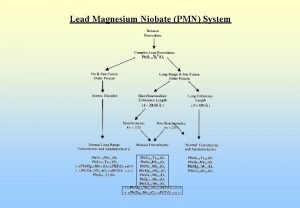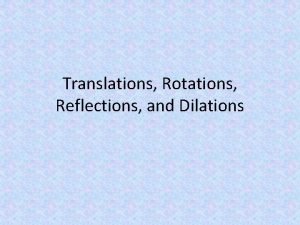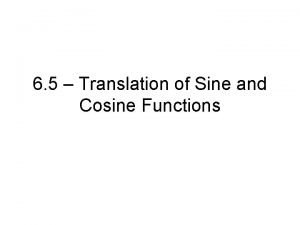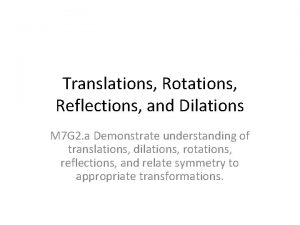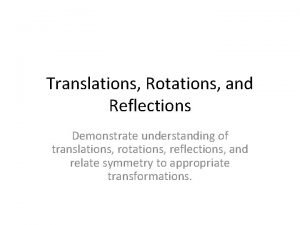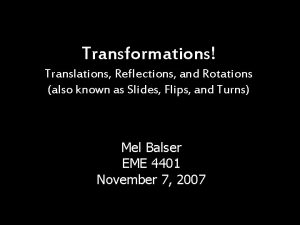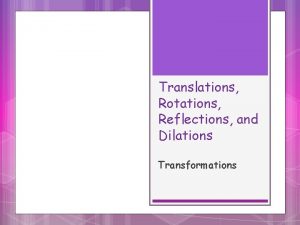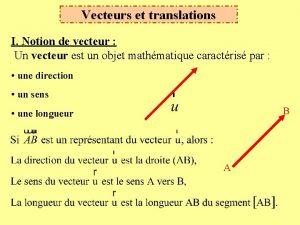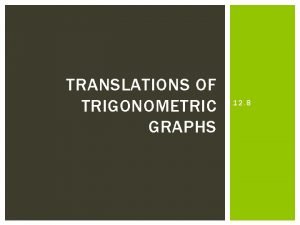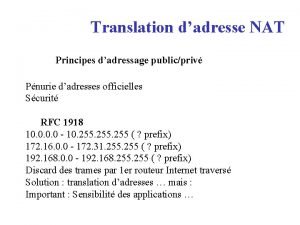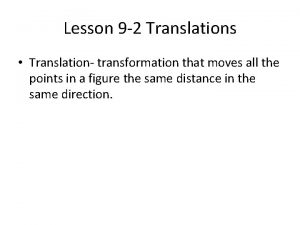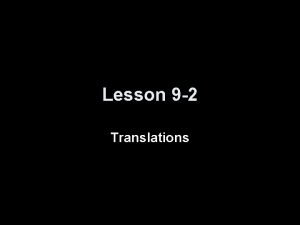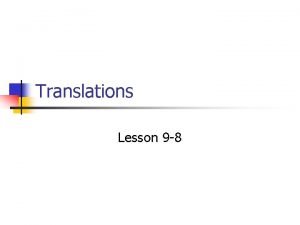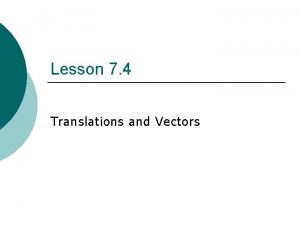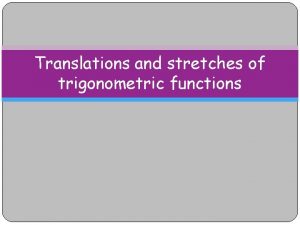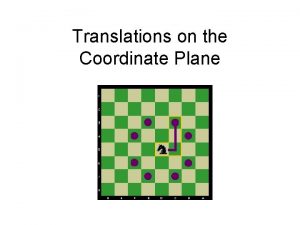HOW MISGUIDED TRANSLATIONS IMPACT USERS AND LEAD TO
















- Slides: 16

HOW MISGUIDED TRANSLATIONS IMPACT USERS AND LEAD TO INACCURATE TRANSPOSITION – THE CASE OF ‘BEST EFFORTS’ UNDERARTICLE 17 DCDSM WHEN TRANSLATIONS SHAPE LEGAL SYSTEMS

PRESENTATION OUTLINE Broader context Research scope ‘Best efforts’ concept Methodology Results

M S D 7 1 e A l c i rt DC ffo t. E s e ‘B tr s’ Me ing an sl n a o i t a Tr n ion ns sp n a it s o Tr COPYRIGHT & RELATED o ati rm a H FUNDAMENTAL RIGHTS PROPORTIONALITY [ART. 17(5)] COOPERATION [ART. 17(7 -8 & 10)] OBLIGATIONS - OCSSPS POLISH CJEU CASE (C-401/19) ARTICLE 17(4) VS. ARTICLE 17(7) iz n o


TRANSLATION INACCURACIES MISGUIDED INTERPRETATION INCORRECT TRANSPOSITION LEGAL UNCERTAINTY FRAGMENTATION USERS, PLATFORMS, CREATORS


FOREIGNIZATI DOMESTICATI ON ON CLOSEST POSSIBLE MATCH

TRANSLATION APPROACHES: THE GOOD, THE BAD, THE UGLY Excessive threshold Incoherence and inconsistency A step in the right direction but still inaccurate The ipssimis verbis The ‘reasonable’ approach As close as possible transposition

ILLUSTRATIONS: THE BAD ITALY &PORTUGAL AND BULGARIA Italy: Inaccurate transposition due to an excessive threshold The Italian translation is ‘i massimi sforzi’: this is a manifest translation error as the terminology implies ‘maximum efforts’ instead of ‘best efforts’. This should, at a minimum, be corrected in the national transposition process. Portugal & Bulgaria: Inaccurate transposition due to excessive thresholds used in a non-coherent and inconsistent manner The Portuguese and Bulgarian translation do not follow the original text’s consistent approach of using ‘best efforts’ throughout Article 17(4), instead they mix various

ILLUSTRATIONS: THE UGLY GERMANY Germany: Risk of inaccurate transposition resulting from use of a wrong standard combined with accurate justification at first but rectified in the latest proposal Initially it kept the wording in the DCDSM’s official German translation: inaccurately translating ‘best efforts’ into ‘alle Anstrengungen’. It highlighted the problem in the legislation’s explanatory remarks to avoid it being interpreted as setting an obligation of ‘all efforts’ = still a risk of an inaccurate implementation or incorrect interpretations by stakeholders. The German proposal switched very recently to ‘bestmögliche Anstrengungen’, an expression much closer

ILLUSTRATIONS: THE GOOD GERMANY The Netherlands: As close as possible transposition when the ‘efforts’ standard cannot be transposed as such The initial proposal was to translate ‘best efforts’ into ‘have done everything possible’ (‘alles in het werk hebben gesteld’) based on an incorrect translation in EU Official Journal as starting point. The text adopted by the Second Chamber switched to ‘best ability’ (‘beste vermogen’), a standard closer to the legal concept of ‘best efforts’, as used in the DCDSM.

E TIV C E IR F EN M G RA ON I T TA TD : E Y K ON AR es R I g M a E E L gu n AT G n M a N I l I EU ugh a AS ULT l E a M i ro fic TH G FRO f h t o 24 slated IN e T L h t n U n t of RES ssio s tra ou wa expre 0 1 ’ y in efforts valent l n i O t u s q e e ‘b LITERAL OR DOES THE TRANSLATION MEET THE COMMUNICATIVE TRANSLATION OF ‘BEST APPROXIMATELY LITERAL PURPOSE IN THE TARGET TRANSLATION INTO EFFORTS’ IN EU OFFICIAL ENGLISH JOURNAL LANGUAGE? LANGUAGE English best efforts French leurs meilleurs efforts best efforts Italian i massimi sforzi maximum efforts Yes No

THE WAY FORWARD – THREE ELEMENTARY STRATEGIES FOR ACCURATELY TRANSLATING ‘BEST EFFORTS’ (1) a literal translation (even when it implies foreignization); (2) translating it as ‘reasonable efforts’ (whenever it finds more resonance in legal language use); and, (3) (in the absence of the former strategies) employing another grammatical construct with an equivalent meaning. At any rate, expressions going beyond the original text’s scope, such as ‘all’ or ‘maximum’ like in the Italian translation, must be avoided.

THE WAY FORWARD – ARTICLE 17 ISFRAMED BY ‘PROPORTIONALITY’ (§ 5) & COOPERATION (§§ 7 -8 & § 10) Article 17 refers to the following concepts to set the context and boundaries for the interpretative framework defining the scope and breadth of ‘best efforts’: 1) ‘proportionality’ (§ 5); 2) ‘cooperation’ (§§ 7 -8 & § 10). The EU institutions have further defined these boundaries by clarifying that the ‘best efforts’ required are part of an ‘obligation of means’, limited by the ‘obligation of result’ to

THE WAY FORWARD – KEEP ‘BEST EFFORTS’ AT A LEVEL OF REASONABLENESS Catch 22 dilemma for OCSSPs: Excessive thresholds, like in the Italian translation, leaves OCSSPs no other option than to: • block content under the ‘obligation of means’ set out under Article 17(4); and, • breach Article 17(7)’s ‘obligation of result’ to not impede users exceptions and limitations. Impacting users’ fundamental rights & jeopardizing OCSSPs’ functioning, especially hurting smaller (EU) ones. Member States need to keep Article 17(4)’s ‘best efforts’ standard at a level of reasonableness to ensure that the national transpositions take due account of proportionality and the

THE WAY FORWARD – FIX @ 2 LEVELS: EC & NATIONAL IMPLEMENTATION the apparent translations errors identified and ensure To fix that the contextual framework limiting Article 17’s ‘best efforts’ concept is taken into account, the EC and the Member States need to: European Commission: Issue corrigenda for incorrect language versions. Member States: Implement ‘best efforts’ correctly, as translation errors are manifest. Italy should follow the examples of Germany and the Netherlands, showing that national legislators can remedy inaccurate EU Official Journal translations.
 Misguided little unforgivable hierarchies
Misguided little unforgivable hierarchies Misguided fanatic
Misguided fanatic Frequency dependence of dielectric constant
Frequency dependence of dielectric constant Dilations translations rotations and reflections
Dilations translations rotations and reflections Translation reflection rotation
Translation reflection rotation Extension of norman, and has 4 interaction framework
Extension of norman, and has 4 interaction framework Horizontal phase shift
Horizontal phase shift Rotation reflection translation dilation
Rotation reflection translation dilation Translations rotations and reflections
Translations rotations and reflections Translations reflections and rotations are all known as
Translations reflections and rotations are all known as Verifying congruence using translations
Verifying congruence using translations Translations rotations reflections and dilations
Translations rotations reflections and dilations Composée de deux translations
Composée de deux translations 12-8 skills practice translations of trigonometric graphs
12-8 skills practice translations of trigonometric graphs Show ip nat translations
Show ip nat translations 9-2 translations answers
9-2 translations answers 9-2 translations
9-2 translations


